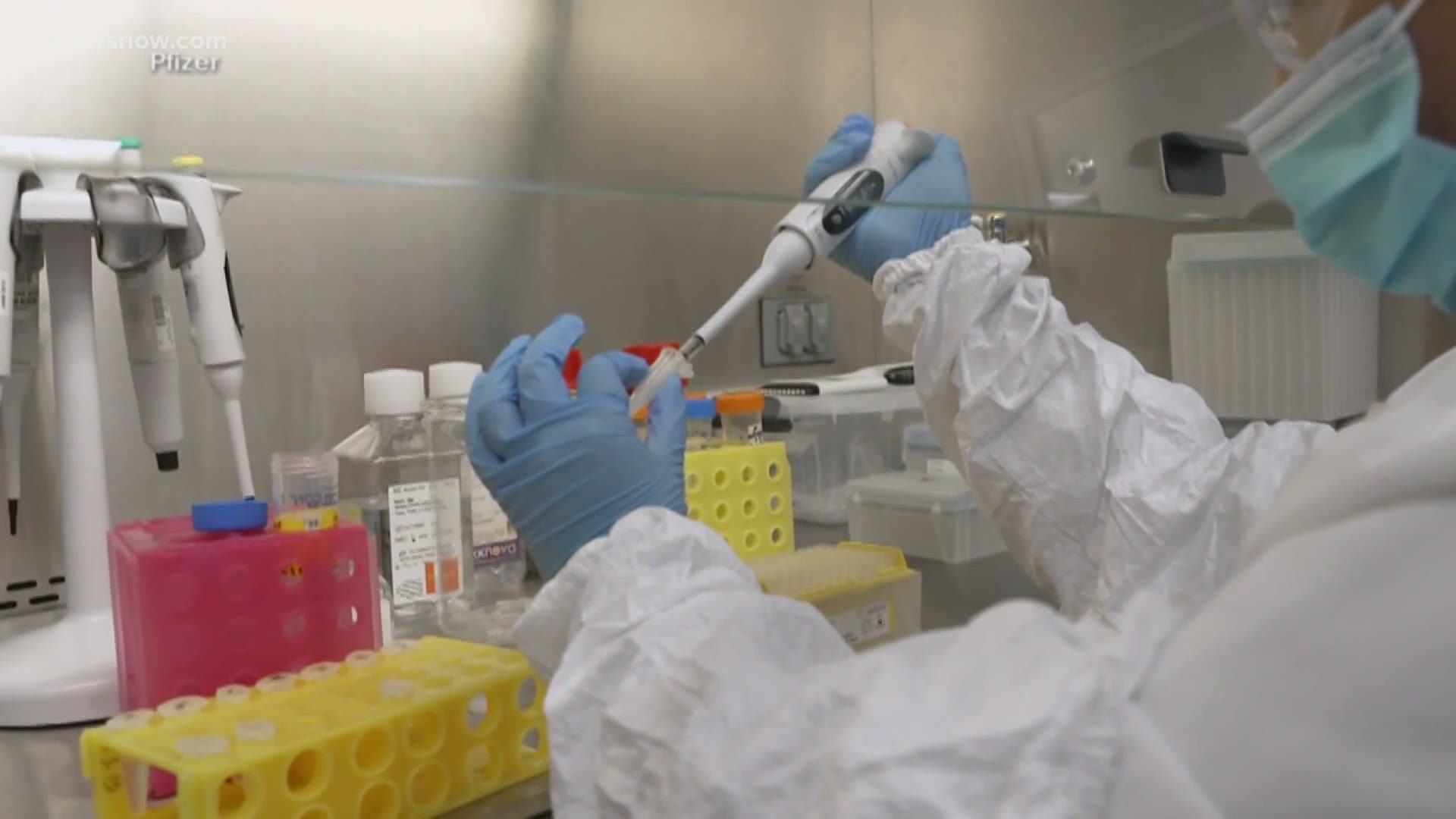NORFOLK, Va. — Nearly a year after the first confirmed case of COVID-19 in the US, healthcare facilities are gearing up to receive a vaccine.
Officials at Lake Taylor Transitional Hospital, a long-term acute care hospital and nursing facility, say they’re hopeful it will save lives.
Throughout the pandemic, nursing homes have been coronavirus hotspots.
“Plans have been started in motion about how we’re going to do it, who we’re going to partner with for a couple weeks now," the hospital's president and CEO Tom Orsini said. "We were going to be ready when the vaccine is ready.”
Orsini said his team is partnering with CVS Omnicare to help store and administer the vaccine. That’s because the Pfizer vaccine requires ultra-cold storage. It has to be store at negative 94 degrees Fahrenheit and his facility lacks the necessary freezers.
“They can store it. They can administer it, they can account for it," Orsini said. “They will set up clinics in the nursing homes to provide the vaccine to the frontline workers and the patients.”
Sentara Healthcare’s Vice President of Clinical Effectiveness, Mary Morin, said they have a task force that’s worked to ensure Sentara has the appropriate equipment to store and administer the vaccine.
"The transportation, as well as the storage and management of the vaccine from a pharmacy perspective, is very, very complex,” she said.
Complex because of the freezing temperatures.
Morin said the vaccine will be stored at Sentara Norfolk General Hospital which has the necessary freezers to keep the vaccine cold. This will be the hub. From there, officials will transport the vaccine to other Sentara clinics, another not-so-easy task.
“It does require dry ice and it does require using the appropriate containers," Morin said.
Orsini said his facility is exploring the option of purchasing the necessary freezer.
"Because what the heck, this might not be the first time we have to do this, and we may need one in the future," he said.
Another complexity: the vaccine must be administered in two separate doses, three weeks apart.
Over at Lake Taylor, although there are long-term residents, there are also patients who move in and out of the facility. So how will they ensure people are getting the second dose?
“We’re going to have to be vigilant in keeping track of where those people go, where they are, and how we can get in touch with them," Orsini said. "Whether it's back to a hospital, another facility, and so on. So it’s going to have to be a herculean effort but it’s one we’re very committed to.”
He said they also have electronic health records that can be connected with other hospitals.
Morin said the dual doses shouldn’t be a problem for Sentara. After healthcare workers administer the first dose to frontline employees, they will make an appointment for the second dose.
"We’re used to giving multiple-dose vaccines," she said. "If they go in and get their hepatitis A vaccine, they’ve got to come back and get that second dose. We are very familiar with building structure and processes to make that happen.”
Health experts have said frontline medical workers and nursing home residents should be among the first to receive the COVID-19 vaccine.

